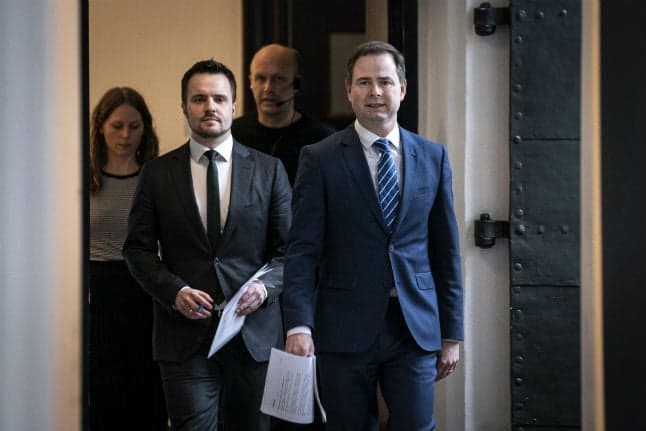Denmark offers companies $6bn in coronavirus cash hand-outs

Denmark's finance ministry has announced plans to spend up to 40bn Danish kroner ($6bn) to help companies hit by the coronavirus crisis to cover their fixed costs until cash flow resumes.
Under the scheme, companies who have seen their revenues decline by 40 percent or more, will receive government grants to help cover between 25 to 80 percent of their fixed costs.
The self-employed and firms with up to ten people who see their revenues fall more than 30 percent will also be offered government compensation worth 75 percent of their normal monthly income -- up to a maximum of 23,000-a-month.
The two grants will be available for three months, after which the hope is that the economy will be able to return to normal.
"These are measures that have never been seen before. It is extraordinary," Finance Minister Nicolai Wammen said as he announced the measures, according to the public broadcaster DR. "We are not talking about loans. These are cash hand-outs."
The two measures come on top of the government's decision to defer as much as 125bn Danish kroner of companies' tax and VAT payments, and its decision to pay between 75 percent and 90 percent of the salaries of employees businesses send home during the crisis.
It has also released banks' countercyclical capital buffer, freeing up 17bn kroner in potential liquidity.
The latest measure has been welcomed by business, but has drawn criticism from some economists.
"It's almost completely crazy that a Danish government can just spend 40bn kroner without any further investigation or much debate," said Las Olsen, the chief economist at Danske Bank, told Denmark's Jyllands-Posten.
"These are completely unheard of steps that the government is now taking," Helge J. Pedersen, chief economist at Nordea, told the magazine. "This is significantly more than fiscal policy was expanded during the 2008-09 financial crisis."
Comments
See Also
Under the scheme, companies who have seen their revenues decline by 40 percent or more, will receive government grants to help cover between 25 to 80 percent of their fixed costs.
The self-employed and firms with up to ten people who see their revenues fall more than 30 percent will also be offered government compensation worth 75 percent of their normal monthly income -- up to a maximum of 23,000-a-month.
The two grants will be available for three months, after which the hope is that the economy will be able to return to normal.
"These are measures that have never been seen before. It is extraordinary," Finance Minister Nicolai Wammen said as he announced the measures, according to the public broadcaster DR. "We are not talking about loans. These are cash hand-outs."
The two measures come on top of the government's decision to defer as much as 125bn Danish kroner of companies' tax and VAT payments, and its decision to pay between 75 percent and 90 percent of the salaries of employees businesses send home during the crisis.
It has also released banks' countercyclical capital buffer, freeing up 17bn kroner in potential liquidity.
The latest measure has been welcomed by business, but has drawn criticism from some economists.
"It's almost completely crazy that a Danish government can just spend 40bn kroner without any further investigation or much debate," said Las Olsen, the chief economist at Danske Bank, told Denmark's Jyllands-Posten.
"These are completely unheard of steps that the government is now taking," Helge J. Pedersen, chief economist at Nordea, told the magazine. "This is significantly more than fiscal policy was expanded during the 2008-09 financial crisis."
Join the conversation in our comments section below. Share your own views and experience and if you have a question or suggestion for our journalists then email us at [email protected].
Please keep comments civil, constructive and on topic – and make sure to read our terms of use before getting involved.
Please log in here to leave a comment.